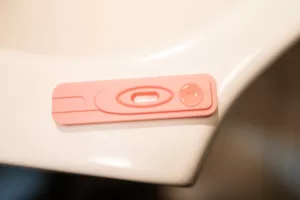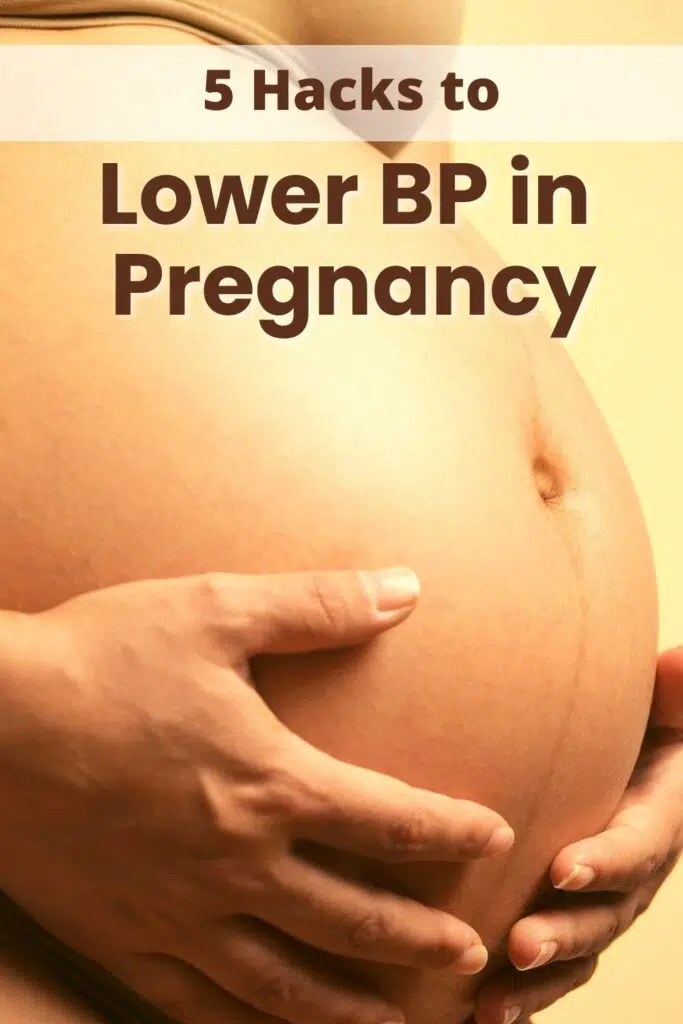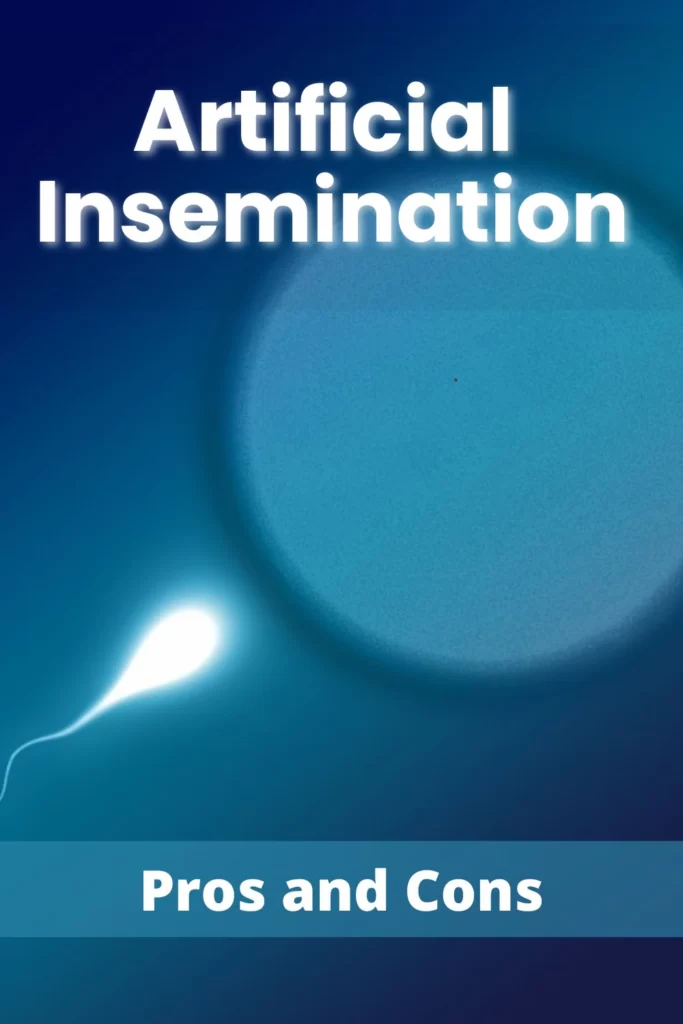Table of Contents
Introduction
Plan-B is a popular emergency contraceptive that can help prevent pregnancy if taken within 72 hours of unprotected sex. While it is highly effective, there are still instances where it may fail to work as intended. In this section, we will discuss the signs that indicate your Plan-B may have been ineffective in preventing pregnancy.
If you are concerned that Plan-B may not have worked for you, it is essential to know what signs to look out for. Some possible indications that Plan-B may have failed include:
- Missed periods
- Unusual bleeding (Implantation Bleeding)
- Abdominal pain or cramping
- Nausea or vomiting for extended periods
- Tender or swollen breasts
It is not intended to cause immediate bleeding. While some women may experience withdrawal bleeding similar to a period after taking the pill, it is not necessary for this bleeding to occur to confirm its effectiveness.
If you experience any of these symptoms after taking Plan-B, it is important to take a pregnancy test and consult with a healthcare provider. Remember, while Plan-B is an effective form of emergency contraception, it is not 100% foolproof.
How to Tell if Plan B Failed
If you have taken Plan-B, you may be anxious to know if it worked effectively. Although Plan-B is highly effective at preventing pregnancy, there is still a chance that it may not work in some instances. So, how can you tell if Plan-B failed? Look out for these signs of an unsuccessful Plan-B:
| Signs That Plan B Didn’t Work |
|---|
| Missed period: One of the most obvious signs of pregnancy is a missed period. If you do not get your period within three weeks of taking Plan-B, it is possible that it may have failed. |
| Heavy bleeding: Plan-B can cause some bleeding, but if you experience very heavy bleeding (Implantation Bleed), it may be a sign that you are pregnant. |
| Cramping: Some women experience mild cramping after taking Plan-B, but if you experience severe cramping, it may indicate that you are pregnant. |
| Nausea and vomiting: These are common side effects of Plan-B, but if they continue for an extended period, it may be a sign that the pill was unsuccessful. |
| Breast tenderness: Sore breasts can be a side effect of pill or a sign of pregnancy, Please take it lightly as it does not renders any conclusion |
| Positive pregnancy test: The most definitive way to tell if Plan-B failed is to take a pregnancy test. If it comes back positive, it means that the pill was not effective. |
If you experience any of these signs after taking Plan-B, it is important to seek medical attention to confirm whether you are pregnant or not. Remember that while Plan-B is highly effective, it is not 100% guaranteed to work in every instance. Being aware of the signs of an unsuccessful Plan-B can help you take the necessary steps to address the situation.
Symptoms of Plan B Failure
If you have taken Plan-B, it is essential to be aware of the signs that it may have failed to prevent pregnancy. Here are some symptoms of Plan B failure to watch out for:
| Failed Plan B Symptoms | Signs Your Emergency Contraceptive Didn’t Work |
|---|---|
| Unexpected bleeding or spotting | Absence of bleeding or spotting |
| Abdominal and pelvic pain | Unexpected cramping or pain |
| Nausea or vomiting | No side effects at all |
| Fatigue or dizziness | Unusual mood swings |
| Breast tenderness | Inexplicable fatigue or dizziness |
If you experience any of these symptoms after taking Plan-B, it’s important to consult with a healthcare provider to determine if you are pregnant. Keep in mind that these symptoms may also be caused by other factors, such as stress or hormonal changes. However, if you suspect that Plan-B may have failed, it’s best to err on the side of caution and seek medical advice.
Remember, emergency contraception is not 100% effective, and there is still a chance that you may become pregnant even after taking Plan-B. Staying informed and aware of these signs can help you detect pregnancy early and take appropriate action.
Signs You Might Still be Pregnant After Taking Plan B
Plan B is intended to prevent pregnancy after unprotected sex or contraceptive failure, but it is not 100% effective. If you have taken Plan B and are experiencing any of the following symptoms, it is possible that the emergency contraceptive did not work as intended:
| Signs | Description |
|---|---|
| Missed Period | If your period is more than a week late, it may be a sign that Plan B failed. However, it is important to note that Plan B can cause irregular bleeding or delay your period. |
| Spotting | Light bleeding or spotting may occur after taking Plan B, but if you continue to experience bleeding for several days, it may be an indication that the emergency contraceptive was unsuccessful. |
| Nausea | While nausea can be a common side effect of Plan B, if it persists for several days or is severe, it may be a sign of pregnancy. |
| Breast Tenderness | If your breasts feel sore or tender, it could be a sign that you are pregnant. Though it can also be the side effect of the pill rendering it inconclusive |
| Abdominal Cramping | Cramping is a common symptom during menstruation, but if you experience severe or prolonged cramping after taking Plan B, it may be a sign of pregnancy. |
If you are experiencing any of these symptoms, it is important to take a pregnancy test to confirm whether or not you are pregnant. It is recommended to wait at least two weeks after taking Plan B to take a pregnancy test for accurate results.
If the test comes back positive and you are indeed pregnant, it is important to seek medical attention as soon as possible to discuss your options. If you do not wish to continue the pregnancy, there are still options available to you like medical or surgical abortion.
Remember that Plan B is not 100% effective, and if you are worried that it did not work, it is important to seek medical advice. If you have any concerns or questions about your sexual health, don’t hesitate to speak with a healthcare professional.
What to Do if Plan B Didn’t Work
If you suspect that Plan B was unsuccessful, it is important to consider your options. You can take a pregnancy test to confirm whether or not you are pregnant and seek medical advice from a healthcare professional. If you do not wish to become pregnant, there are other options available to you like prescription contraceptives, such as birth control pills, IUDs, or other emergency contraception options.
Remember, it is important to use contraception consistently and correctly to prevent unintended pregnancies. By educating yourself about the various options available, you can make informed decisions about your sexual health.
Understanding Emergency Contraception Effectiveness
While emergency contraception, such as Plan B, can significantly reduce the risk of pregnancy, it is not 100% effective. There are several factors that can impact the effectiveness of emergency contraception, including:
- The time at which it was taken
- Whether it was taken correctly
- The individual’s weight
- Whether the individual was already pregnant at the time of taking the emergency contraception
If you suspect that you may be pregnant, it is important to take a pregnancy test or consult with a healthcare professional to discuss your options.
If emergency contraception was ineffective in preventing pregnancy, it is important to consider alternative forms of contraception to prevent future unwanted pregnancies. Long-term birth control methods, such as implants or intrauterine devices (IUDs), are highly effective and may be a good option for some individuals.
Is Bleeding Necessary After Taking Emergency Contraceptive ? FAQs, Explanations
Common Mistakes That Can Impact Plan B’s Effectiveness
Plan B is an emergency contraceptive that can help prevent pregnancy if taken within 72 hours of unprotected sex. However, it is essential to avoid common mistakes that can reduce its effectiveness.
Waiting Too Long to Take Plan B
Plan B works best when taken as soon as possible after unprotected sex, Ideally within 72 hours. Waiting too long can reduce its effectiveness and increase the chances of pregnancy.
Taking Plan B Multiple Times
Plan B should only be taken once in a menstrual cycle. Taking it multiple times can cause hormonal imbalances and increase the risk of pregnancy.
Not Taking Plan B with Food
Plan B can cause nausea and vomiting in some people. Taking it with food can help reduce these side effects and increase its effectiveness.
Using Plan B as a Regular Contraceptive
Plan B is not intended for regular use and should only be used as an emergency contraceptive. Using it as a regular contraceptive can lead to hormonal imbalances and reduce its effectiveness.
Relying on Plan B Alone
Plan B is not 100% effective in preventing pregnancy. It is essential to use additional forms of contraception, such as condoms or birth control pills, to reduce the risk of pregnancy.
| Common Mistakes | Impact on Plan B’s Effectiveness |
|---|---|
| Waiting too long to take Plan B | Reduces effectiveness |
| Taking Plan B multiple times | Increases risk of pregnancy |
| Not taking Plan B with food | Reduces effectiveness |
| Using Plan B as a regular contraceptive | Reduces effectiveness |
| Relying on Plan B alone | Increases risk of pregnancy |
By avoiding these common mistakes, you can increase the effectiveness of Plan B and reduce the risk of unwanted pregnancy. However, if you suspect that Plan B has failed to prevent pregnancy, it is essential to seek medical advice and explore alternative options.
What to Do if Plan B Didn’t Work
Discovering that Plan-B may have failed to prevent pregnancy can be a stressful experience, but it’s important to take action right away. Here are some steps you can take if you suspect that Plan-B was ineffective:
1. Take a pregnancy test: Taking a pregnancy test as soon as possible after a missed period is the best way to confirm pregnancy. If the test is positive, make an appointment with your healthcare provider to discuss your options.
2. Consult your healthcare provider: If you’re concerned that Plan-B may not have worked, speak to your healthcare provider about your options. They can provide guidance on the next steps to take and discuss alternative emergency contraception options.
3. Consider long-term contraception: If you’re not planning on getting pregnant anytime soon, consider using long-acting contraceptives like IUDs or implantable devices. These methods have a high success rate and can provide effective pregnancy prevention for years.
4. Take care of your mental health: Coping with an unwanted pregnancy or the fear of pregnancy can be emotionally challenging. Seek support from loved ones or a mental health professional if needed.
5. Be proactive about your sexual health: Educate yourself about sexual health and contraception to prevent future unwanted pregnancies. Talk to your healthcare provider about the best contraceptive options for your needs and take the necessary steps to protect yourself.
Seeking Medical Help and Support
If you suspect that Plan-B has failed to prevent pregnancy, it is essential to seek medical help and support as soon as possible. It can be a challenging and confusing situation, but you are not alone. Many individuals have been through this experience and have found the help they need.
One option is to contact your healthcare provider or a local family planning clinic for guidance. They can provide you with information on available pregnancy tests and further contraceptives options. It is essential to keep in mind that the sooner you seek help, the more options you will have available.
You can also reach out to support groups or counseling centers that can offer emotional and mental support during this time. Some organizations that can provide assistance include:
| Organization | Services Provided |
|---|---|
| Planned Parenthood | Information on pregnancy tests, emergency contraception, and abortion services. Counseling and support services are also available. |
| National Abortion Federation | Information and referrals for abortion services, counseling, and support services for individuals who need it. |
| The National Campaign to Prevent Teen and Unplanned Pregnancy | Information on sexual health education, contraception options, and resources for preventing future unwanted pregnancies. |
Remember that seeking help and support is critical to your health and well-being. Don’t hesitate to reach out if you suspect that Plan-B was ineffective.
Preventing Future Unwanted Pregnancies
Experiencing Plan-B failure can be a stressful and overwhelming experience. However, there are steps you can take to prevent future unwanted pregnancies.
Long-term Contraception Options
Consider talking to your healthcare provider about long-term contraception options such as birth control pills, IUDs, or hormonal implants. These methods are highly effective at preventing pregnancy and can provide peace of mind for an extended period.
Sexual Health Education
Education and knowledge about sexual health can also help prevent unwanted pregnancies. Learn about safe sex practices, including the proper use of condoms and other forms of birth control.
Regular Pregnancy Testing
It’s important to be vigilant about pregnancy after experiencing Plan-B failure. Regular pregnancy tests and monitoring of your menstrual cycle can help detect pregnancy early on and allow for timely intervention.
Emergency Contraception Alternatives
There are alternative emergency contraception options available if Plan-B fails. One option is the copper IUD, which can be inserted up to five days after unprotected intercourse. Another option is ulipristal acetate, which is a pill that can be taken up to five days after intercourse.
Plan B Alternatives
If Plan-B did not work, there are alternative emergency contraception options available. Here are some options to consider:
Copper Intrauterine Device (IUD)
The copper IUD is a small, flexible device that is inserted into the uterus by a healthcare professional. It can be used as emergency contraception up to 5 days after unprotected sex. The copper IUD is over 99% effective at preventing pregnancy and can provide long-term contraception for up to 10 years.
Ella
Ella is a prescription-only emergency contraceptive pill that can be taken up to 5 days after unprotected sex. It contains ulipristal acetate, which works by preventing ovulation. It is more effective than Plan-B, with a success rate of up to 98%.
Progestin-Only Pills
Progestin-only pills, also known as mini-pills, are a form of hormonal emergency contraception. They are taken in two doses, 12 hours apart, up to 3 days after unprotected sex. They work by preventing ovulation and thickening cervical mucus to prevent sperm from reaching the egg. They are up to 89% effective at preventing pregnancy.
Condoms
Condoms are a barrier method of contraception that can be used to prevent pregnancy as well as sexually transmitted infections. They are readily available over-the-counter and should be used correctly and consistently to be effective.
It is important to note that emergency contraception should not be used as a regular form of birth control. Talk to your healthcare provider about long-term contraceptive options that are right for you.
What to Do if Plan B Didn’t Work
If you have taken Plan-B and suspect that it was not effective, it is important to act quickly. Consider the alternative options listed above or consult with your healthcare provider for further advice.
Key Takeaways
Plan-B is a popular emergency contraceptive that can help prevent pregnancy if taken within 72 hours of unprotected sex.
Signs that your Plan-B may have failed include missed periods, unusual bleeding, abdominal pain, nausea, and tender breasts.
If you experience any of these symptoms after taking Plan-B, it is important to take a pregnancy test and consult with a healthcare provider.
Key Takeaways
- Plan-B is a popular emergency contraceptive that can help prevent pregnancy if taken within 72 hours of unprotected sex.
- Signs that your Plan-B may have failed include missed periods, unusual bleeding, abdominal pain, nausea, and tender breasts.
- If you experience any of these symptoms after taking Plan-B, it is important to take a pregnancy test and consult with a healthcare provider.
Conclusion
Congratulations on taking proactive steps towards protecting your sexual health by using emergency contraception. However, it’s important to be aware of the signs that Plan-B may not have worked as intended. By knowing how to tell if Plan B failed, you can take appropriate action and seek medical assistance if necessary.
If you experience any failed Plan B symptoms or signs of an unsuccessful Plan B, such as Heavy spotting, breast tenderness, or abdominal pain, it’s important to remain vigilant and consider taking a pregnancy test. Remember, signs that emergency contraception was ineffective can be subtle, so trust your instincts and seek medical advice if you suspect you are pregnant.
In the event that Plan-B didn’t work, there are alternative emergency contraception options available, and you should consult with your healthcare provider about which option might be best for you. Additionally, by understanding the factors that can impact Plan B’s effectiveness and taking preventive measures, you can reduce the risk of unwanted pregnancies in the future.
Remember, emergency contraception such as Plan B is not 100% effective, and there is no shame in seeking medical help and support if you need it. Don’t hesitate to reach out to your healthcare provider if you are concerned that Plan-B was ineffective or if you need more information on sexual health and contraception options.
FAQ
What are the signs that Plan-B didn’t work?
The signs that Plan-B may have failed to prevent pregnancy can vary, but common indicators include a missed period, spotting, or experiencing symptoms of pregnancy such as breast tenderness, fatigue, or nausea.
How can I tell if Plan B failed?
If you are concerned that Plan-B may not have been effective in preventing pregnancy, you can take a pregnancy test. It is recommended to wait at least two weeks after taking Plan-B to take a test for accurate results.
What are the symptoms of Plan B failure?
Symptoms of Plan-B failure can include a missed period, heavier or lighter menstrual flow, breast tenderness, fatigue, nausea, or other signs commonly associated with pregnancy. However, it is important to note that these symptoms can also occur due to other factors and may not necessarily indicate pregnancy.
What are signs that I might still be pregnant after taking Plan B?
If you have taken Plan-B and are experiencing symptoms such as a missed period, frequent urination, breast tenderness, fatigue, or nausea, it is possible that you may still be pregnant. It is advisable to take a pregnancy test to confirm.
Nausea and Breast Tenderness can be due to the Pill itself or it may be due to pregnancy, Please don’t rely on it
What factors can impact the effectiveness of emergency contraception like Plan B?
Several factors can affect the effectiveness of emergency contraception, including the timing of taking the pill, body weight, and certain medications. It is important to take emergency contraception as soon as possible after unprotected intercourse for optimal effectiveness.
Are there common mistakes that can impact the effectiveness of Plan B?
Yes, common mistakes that can potentially decrease the effectiveness of Plan-B include taking the pill too long after unprotected intercourse, not following the instructions correctly, or taking certain medications that may interfere with its effectiveness. It is important to carefully read and follow the instructions provided.
What should I do if Plan B didn’t work?
If you suspect that Plan-B was ineffective in preventing pregnancy, it is recommended to take a pregnancy test to confirm. If the test is positive, it is important to seek medical advice and discuss your options with a healthcare professional.
Where can I seek medical help and support if Plan B didn’t work?
If Plan-B fails to prevent pregnancy, it is essential to seek medical help and support. You can contact your healthcare provider or visit a local family planning clinic to discuss your situation and receive appropriate guidance and assistance.
How can I prevent future unwanted pregnancies?
To prevent future unwanted pregnancies, it is advisable to explore long-term contraception options such as birth control pills, intrauterine devices (IUDs), implants, or sterilization. Additionally, practicing safe sex, using condoms, and receiving sexual health education can help in preventing unintended pregnancies.
What are the alternatives to Plan B?
If Plan-B fails or is not accessible, there are alternative emergency contraception options available, such as the copper IUD, which can be inserted up to five days after unprotected intercourse. It is important to consult with a healthcare professional to determine the best alternative for your situation.




